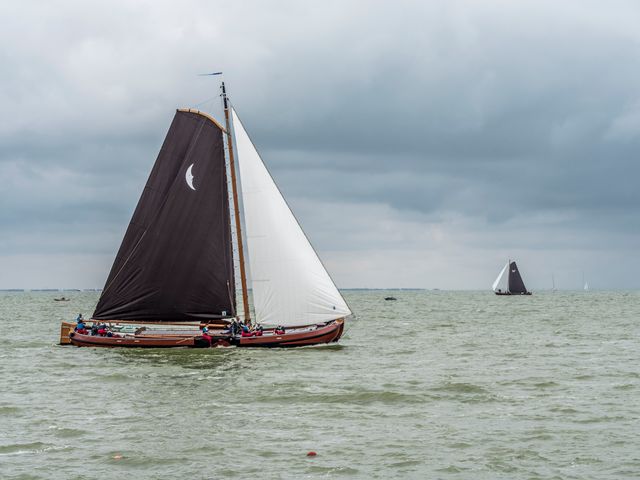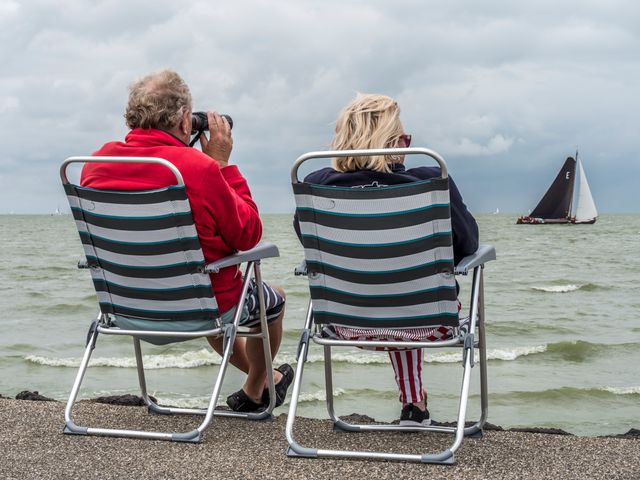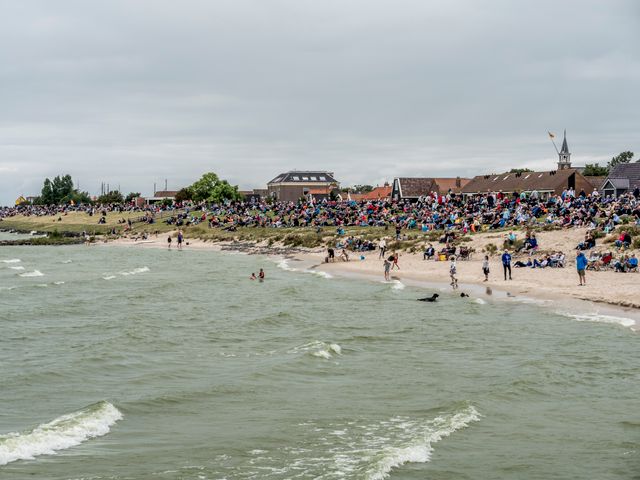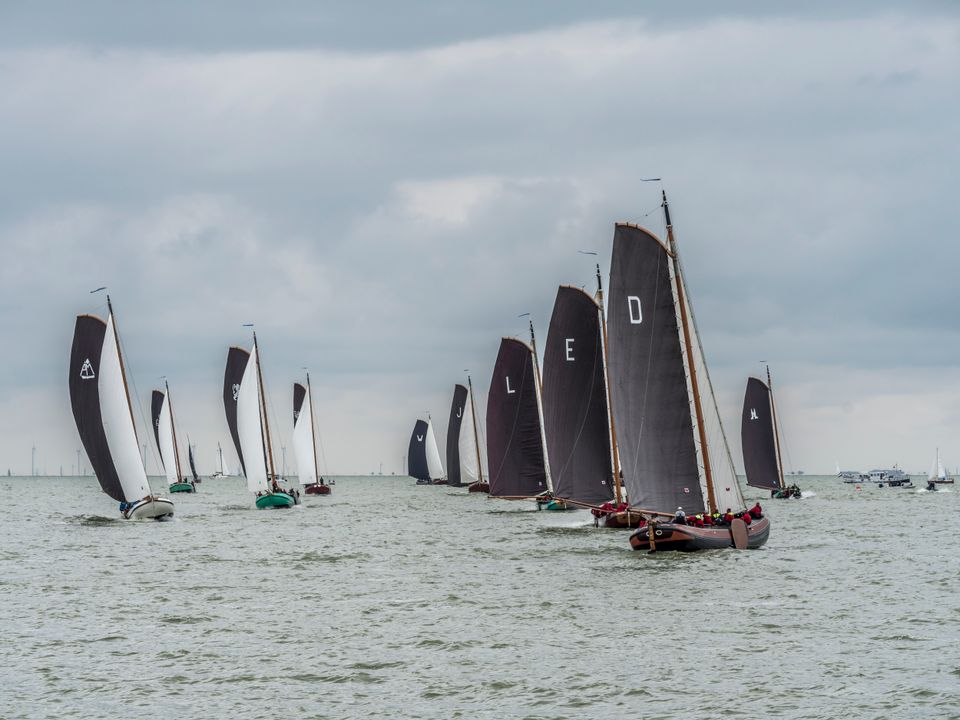Skûtsjesilen
Every year in July and August, the tradition of ‘skûtsjesilen’ takes place on the Frisian lakes. A contest powered by ‘wynenerzjy’, which means wind energy in Frisian. Not only is it a great experience to witness the battle between these traditional cargo ships, but often the entire village or city where the competition takes place is in a festive mood for days. Let’s meander back in time to find out more about this unique Frisian tradition.
Skûtsjes, the trucks of yesteryear
For years, the skûtsje was the cargo ship for the Frisian inland waterways. Almost all villages in Friesland were accessible by water. The skûtsjes were the ‘trucks’ of those days and the waterways, the highways. You pronounce it ‘skoetsje’, which is Frisian for barge. The cargo of these sailing ships consisted mainly of peat, potatoes, sugar beet, fertile topsoil, manure or building materials. Often a whole skipper’s family lived in the deckhouse, which they often furnished with small items, so everything would fit.

Wind energy or under their own power
They sailed on wind energy, or under their own power. If there was no wind, or a headwind, the wife and children or the servant disembarked to drive the skûtsje, i.e. to propel the ship forward with muscle power. This was called ‘yn ‘e beage rinne’, or walking in the rigging to pull a ship. Nowadays, almost all skûtsjes also have an engine and all over Friesland tourists can take a sailing trip with an experienced skipper.
After the Second World War, skûtsjesilen really became a well-known concept. Transporting cargo with sailing ships was almost non-existent, but everyone realised that the skûtsjes had to remain a sailing tradition. That’s why in the winter of 1944-1945, architect and sailing enthusiast Gerben van Manen from Drachten took it upon himself to establish the Sintrale Kommisje Skûtsjesilen (SKS). The competitions soon became so popular that the SKS had to set a maximum number of participants of fourteen. Other skûtsje owners who also wanted to participate in a competition were none too pleased about that and in 1981 decided to establish the Iepen Fryske Kampioenskippen Skûtsjesilen (IFKS), whose competitions are open to all. Every year, both the SKS and the IFKS organise competitions throughout Waterland van Friesland, which are well attended by locals and tourists alike.


No cargo? - Then it’s time for a competition!
When there was no cargo to transport, competitions with cash prizes took place between skippers. Competitions were also organised by innkeepers or a ‘committee of enthusiasts’. One such competition was advertised in the Leeuwarder Courant of 12 August 1834:
"A few sailing enthusiasts in Sneek are organising a sailing competition, on Wednesday 20 August 1834, in the afternoon exactly at half past one: A fine and just finished silver pocket tobacco box, by ferries and single-masted cargo boats of 8 cubits, 207 stripes and above."
